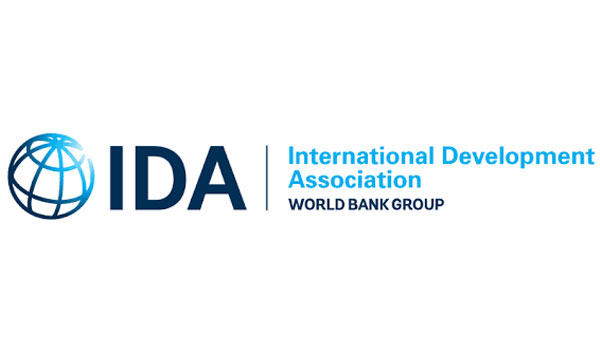
Jun 19 , 2021
By Asegid Getachew
Businesses operate in a very competitive and dynamic environment. Technological processes, product concepts and designs, and consumer tastes keep changing with time. To continue as a going concern amid such a change, businesses need to keep adapting with the pace of the dynamism.
One strategy that businesses need to follow is to have a robust research and development (R&D) system in place. This enables them to gain a competitive edge by helping them understand the needs of the market, continuously upgrade the features of their offering, and also launch new products and services.
Globally, out of the total of over a trillion dollars in R&D outlays, nearly a quarter of it comes from the two world-leading economies, the United States and China, according to a report by the National Science Board, headed “Research and Development: US Trends and International Comparisons.” It is also revealed that about 70pc of the total R&D investment in the US in 2017 came from the business sector.
The likes of Amazon alone have invested a total of 22.6 billion dollars in R&D in 2018. Putting this into perspective, the amount is twice or greater than the annual budget of some countries in the developing world.
"Amazon has poured resources into AWS, Alexa and technologies like computer vision to support ambitious projects such as the Amazon Go cashier-less store of the future," Vox has reported.
It is not a surprise that the biggest spending when it comes to R&D are tech companies, with Alphabet, Intel, Microsoft and Apple coming on the heels of Amazon when it comes to the United States. The biggest R&D spender in China has usually been Alibaba, at about a modest 3.6 billion dollars compared to American firms.
It is a completely different story in developing countries such as Ethiopia. Not many of the economies in sub-Saharan Africa invest much in R&D, where the share as a percentage of GDP is 0.4pc. This is compared to the worldwide average of 1.7pc. Ethiopia does relatively better than the regional average at 0.6pc, spending an estimated 740,000 dollars in R&D. Universities make up for much of this, while business' spending is nearly non-existent, and there are just 44 researchers for every one million people in Ethiopia.
Organisations in this part of the globe mostly depend on technology acquisition and the associated knowledge transfer that comes with it. True, technology acquisition may at times be less costly, takes less amount of time to implement and be less risky, however, it hampers the level of domestic innovation and creativity.
Business organisations in Sub-Saharan Africa should not consider R&D expenditure as a simple outlay of resources. They should rather see it as an investment with the potential to help firms to stay competitive and excel in the international market. Businesses should not hesitate to set up an R&D team engaged in product improvement and development activities.
Collaboration with government agencies and universities is also very crucial as it can enable them to increase the diversity of expertise and knowledge that goes into their pursuit of innovation. This should go beyond naming centres of excellence in college campuses and focusing on creating the necessary linkages with industries, increasing research funding, and putting in place a rigorous system for producing PhD candidates.
Of course, R&D is not a silver bullet, it is one of many critical pillars in growing and revolutionalising businesses and economies.
"Innovation has nothing to do with how many R&D dollars you have," Steve Jobs once said. "When Apple came up with the Mac, IMB was spending at least 100 times more on R&D. It's not about money. It's about the people that you have, how you're led, and how much you get it."
PUBLISHED ON
Jun 19,2021 [ VOL
22 , NO
1103]


Commentaries | Dec 10,2018

My Opinion | Jan 01,2022

Viewpoints | Jun 12,2021

Fortune News | Jun 01,2019

Exclusive Interviews | Jan 07,2024

Viewpoints | Jun 01,2024

Viewpoints | Apr 13,2024

Exclusive Interviews | Jan 24,2023

Radar | Jun 04,2022

Editorial | Mar 19,2022

My Opinion | 131584 Views | Aug 14,2021

My Opinion | 127940 Views | Aug 21,2021

My Opinion | 125915 Views | Sep 10,2021

My Opinion | 123539 Views | Aug 07,2021

Dec 22 , 2024 . By TIZITA SHEWAFERAW
Charged with transforming colossal state-owned enterprises into modern and competitiv...

Aug 18 , 2024 . By AKSAH ITALO
Although predictable Yonas Zerihun's job in the ride-hailing service is not immune to...

Jul 28 , 2024 . By TIZITA SHEWAFERAW
Unhabitual, perhaps too many, Samuel Gebreyohannes, 38, used to occasionally enjoy a couple of beers at breakfast. However, he recently swit...

Jul 13 , 2024 . By AKSAH ITALO
Investors who rely on tractors, trucks, and field vehicles for commuting, transporting commodities, and f...

Jun 28 , 2025
Meseret Damtie, the assertive auditor general, has never been shy about naming names...

Jun 21 , 2025
A well-worn adage says, “Budget is not destiny, but it is direction.” Examining t...

Jun 14 , 2025
Yet again, the Horn of Africa is bracing for trouble. A region already frayed by wars...

Jun 7 , 2025
Few promises shine brighter in Addis Abeba than the pledge of a roof for every family...

Jun 29 , 2025
Addis Abeba's first rains have coincided with a sweeping rise in private school tuition, prompting the city's education...

Jun 29 , 2025 . By BEZAWIT HULUAGER
Central Bank Governor Mamo Mihretu claimed a bold reconfiguration of monetary policy...

Jun 29 , 2025 . By BEZAWIT HULUAGER
The federal government is betting on a sweeping overhaul of the driver licensing regi...

Jun 29 , 2025 . By NAHOM AYELE
Gadaa Bank has listed 1.2 million shares on the Ethiopian Securities Exchange (ESX),...